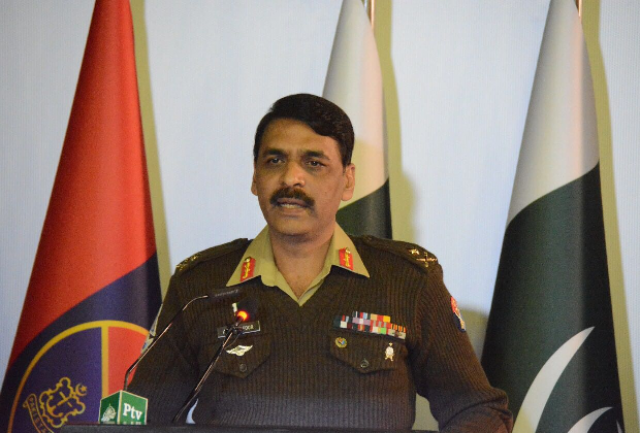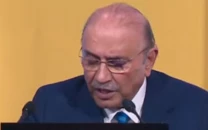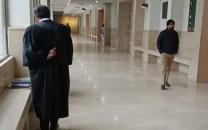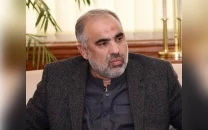It’s up to parliament to decide fate of military courts: DG ISPR
Asif Ghafoor says military courts have created fear among terrorists

DG ISPR Major General Asif Ghafoor. PHOTO: FILE
The tenure of military courts, which were established after the 2014 Peshawar attack, is set to expire in March.
“The decision on military courts’ extension rests with parliament,” Inter-Services Public Relations spokesperson Major General Asif Ghafoor told Dunya News on Friday night.
He said lawmakers can decide on the fate of military courts “keeping in view the current [security] situation, and their impact”.
“We will do what parliament tells us,” he said, adding that even previous extensions to military courts were given by the public representatives, and the decision has to be taken with consensus.
Ghafoor explained that military courts were established because the country’s criminal justice system couldn’t effectively deal with terrorism cases. “It was decided through a national consensus that military courts should be established and death penalty be revived,” he said.
PPP support for military courts' extension 'will be difficult': Bilawal
Now it needs to be seen, the DG ISPR added, if the country's judicial system has become effective enough to deal with the cases.
He said 717 cases were given to military courts in the last four years, 646 of which were disposed of.
The DG ISPR said there was a transparent system through which the cases were transferred to military courts. “These cases have no link with missing persons,” he asserted.
He also negated the perception that extension in military courts was desired by the army only, and added that military courts created fear among terrorists. “Military courts have sent a clear message to terror outfits, militants and their handlers that they can be punished," he said.
Earlier this month, the law ministry informed that the summary for a second extension to military courts was forwarded to the Cabinet for approval.
Opposition parties have opposed the move, arguing that the law and order in the country is satisfactory and there is no need to further extend the courts' tenure.



















COMMENTS
Comments are moderated and generally will be posted if they are on-topic and not abusive.
For more information, please see our Comments FAQ